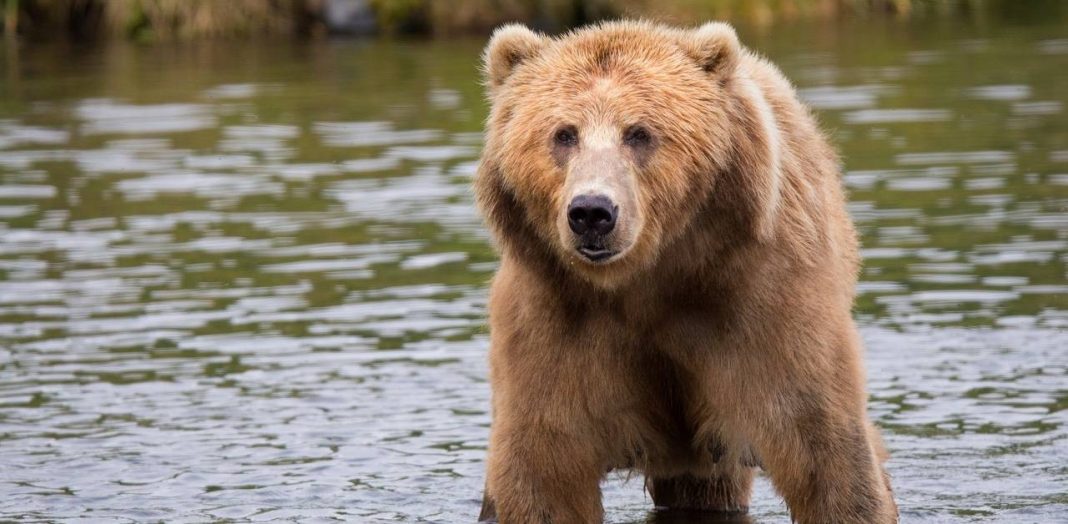UPDATED February 10, 2022 This piece has been updated to reflect the emergence of new technology


Christian Mathews Security Writer
Bear attacks can be horrifying, especially if you are alone hiking in the middle of nowhere. If you seek adventures and often go into the woods, it is essential to keep yourself safe from natural predators. You may be asking how effective is bear spray.
A bear spray is a perfect solution to keep yourself safe from bear attacks. Numerous studies show that bear sprays are useful across a range of environs and can help protect an individual in case of confrontation with an aggressive bear. These sprays are effective against three kinds of bears, the black bear, the brown bear and the polar bear. These sprays are different to those used for person protection, where you would be considering pepper gel vs spray.
We have compiled a comprehensive guide on bear sprays and everything you need to know about them.
1How Common Are Bear Attacks?
Bear attacks can be common in areas where there is a significant bear population. Think of mountainous regions where black and brown bears reside. According to sources, on average, there are 40 bear attacks per year in America, which is the highest number in the world.
Most of these attacks occur in the wild, in forests and wilderness habitats. These are places that are mostly frequented by hunters, campers, and hikers. Despite having the highest number of bear attacks in the world, overall instances of bears attacking humans are relatively low in North America. Bear attacks are generally a rare occurrence, but it never fails to err on the side of safety.
2How Does Bear Spray Work?
Bear spray is an aerosol-based bear deterrent with active ingredients like capsaicin and other related compounds used to deter and protect against aggressive or attacking bears. It is one of the best ways to protect oneself from bears.
3How Much Bear Spray Do I Need?
Experts recommend keeping a can of bear spray with you if you are venturing into an area known for bear habitation and bear attacks. It is unlikely that you will encounter an aggressive bear. However, if you do, you should follow the established bear avoidance safety techniques and use the bear spray as a complementary measure if it comes too close to you.
4Is Bear Spray Effective?
How effective is bear spray? Studies show that bear sprays are quite an effective deterrent if they are used correctly. These studies further indicate that a majority of people, about 98%, are able to escape bear attacks by using bear spray.
The capsaicin compounds in the bear spray make it easy for the individual to incapacitate the bear and run. The effectiveness of a bear spray depends on the formulation used by the manufacturer, but overall, the bear sprays work perfectly on a moving target within the range of 3 meters.
It is important to note that bear sprays do not fatally harm the animal. Contrary to popular belief, there have been no reported deaths of bears due to the use of bear sprays. Many experts argue that bear sprays are practical tools for human safety and bear conservation.
The United States Geological Survey advises individuals to use bear sprays as an additional precaution along with regular bear avoidance safety techniques. Bear sprays should only be used in the instance of confronting an aggressive or charging bear.
5How To Choose A Bear Spray
There are certain factors to consider when purchasing a bear spray, the most important being the price, effectiveness and quantity of bear spray.
6How To Use Bear Spray
Bear sprays are used like any other aerosol spray. Experts indicate that bear spray is best used when the target is moving or stationary, within a range of 1 to 3 meters of the individual. Some ask if bear spray works as an effective dog attack protection device? We would recommend sticking to dog specific sprays and devices.
7How To Avoid Bear Attacks
Knowing how effective is bear spray and being able to use it properly is just one way save your life. The best and the most obvious way to avoid bear attacks is not to be in bear habitats. Such areas are particularly prone to bear attacks. While bear attacks are generally rare, there has been an uptick in cases due to increasing human activity in natural bear habitats.
Having a concrete idea of bear avoidance procedures can help you stay safe in the woods and potentially save your life if you find yourself in the middle of a bear attack. Here are some different scenarios where you can encounter a bear attack and what to do in each case.
Hiking
While hiking, it is important that you keep yourself safe by making your presence known. Always travel in groups and try not to isolate yourself. Make noise and commotion to keep the bears away from you. The noise will keep the animal from attacking or coming near you. Finally, keep a lookout for signs that indicate active bear activity, such as bear tracks or fresh bear scat. Hiking during the day reduces the chance of sighting or confronting an aggressive bear.
Camping
Camping and cooking food has the potential to attract hungry animals, especially bears, to the campsite. The National Parks Conversation Association suggests hanging camp food away from the tent and sleeping area. Food should be placed at least 14 feet above the ground and 4 feet away from a tree. It is best to keep the food and tent in an area with good visibility so that you can easily spot an approaching bear.
Distant Encounter
If you see a bear in the distance, the best strategy is to cautiously and quietly move out of the area and continue your hike on an alternative route. If there is no alternate route available, wait for a while till the bear goes its own way. Make some noise and commotion while walking up and down the trail. This will keep the bear away from the trail.
With each of these scenarios, the bottom line is that you have to maintain your sense of calm and wits to don’t harm yourself or the animal. Now you know how effective is bear spray, along with other protective mechanisms to keep you safe.

















































